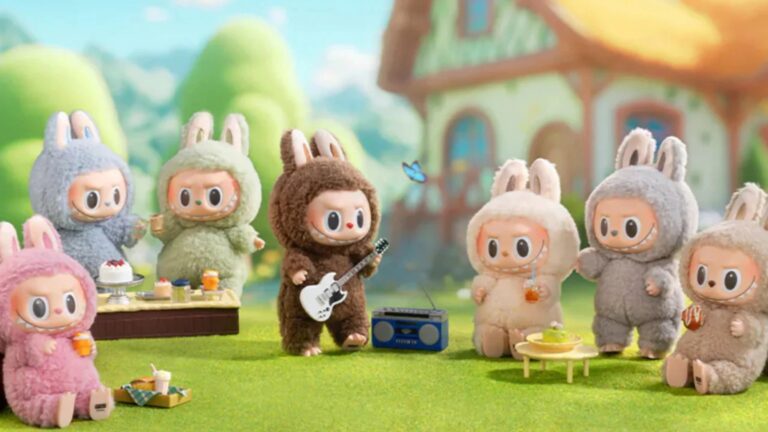As the Chinese toy brand Labubu continues to rise as a global cultural phenomenon, a new legal dispute over intellectual property has surfaced. On July 18, Pop Mart, the company behind Labubu, filed a lawsuit in the U.S. District Court for the Central District of California against 7-Eleven, Inc. and eight of its franchisees in the state, alleging that they sold counterfeit Labubu products.
Labubu has quickly captured international attention, thanks in part to social media posts from celebrities such as BLACKPINK’s Lisa and Filipino fashion icon Heart Evangelista. The character’s popularity has grown so rapidly that official items are often sold out, and knockoff products—dubbed “Lafufu” in the U.S.—have begun to circulate in response to overwhelming demand.
According to the complaint, some 7-Eleven locations sold Labubu figures that closely resembled the official products in appearance but were of significantly inferior quality. Pop Mart points to manufacturing defects, including misaligned eyes, sloppy stitching, distorted head shapes, and even figures with upside-down faces. Although the packaging mimicked the official design, the overall execution lacked the refinement of the authentic products.
Pop Mart defines Labubu’s physical design as a legally protectable trade dress. Key features include a wide grin showing nine sharp teeth, a furrowed brow, a small inverted triangle-shaped nose, two pointed ears atop the head, and short arms with four fingers and claw-like feet. The company claims that these distinctive traits are now widely recognized by consumers as identifiers of the Labubu brand.
These design elements, Pop Mart argues, go beyond toy aesthetics and function as core components of its brand identity—elements the company has invested heavily in protecting. According to the lawsuit, Pop Mart generated $34 million in U.S. sales in 2024 and spent over $2 million on advertising. The Monsters series, which includes Labubu, brought in more than $420 million in revenue globally that year, making Labubu a cornerstone of the company’s portfolio.
The lawsuit alleges trademark infringement, copyright infringement, trade dress infringement, and unfair competition. Pop Mart is seeking monetary damages, an injunction to halt further sales of counterfeit goods, and corrective advertising to repair the damage caused to its brand.
One of the central issues raised by the lawsuit is the scope of responsibility that a franchisor bears for the actions of its franchisees. Pop Mart argues that 7-Eleven maintains centralized control over inventory management, sales systems, and marketing activities, and therefore should be held directly or vicariously liable for the infringing activity that occurred under its brand.
As evidence, Pop Mart submitted video footage of a consumer visiting a 7-Eleven store in search of a genuine Labubu figure, only to find that the product purchased was a poor-quality counterfeit.
This lawsuit raises important questions about the extent to which corporate franchisors should be held accountable for the unlawful actions of their franchisees in today’s complex retail environment. Even if 7-Eleven headquarters was unaware of the counterfeit products beforehand, confirmation that such items were sold under its brand could expose the company to significant legal and financial liability.
As the lines between art toys and luxury goods continue to blur, authenticity has become a vital pillar of brand value for companies like Pop Mart. In an era where franchisees can easily procure and sell products outside official distribution channels, this lawsuit serves as a powerful reminder of the risks such actions pose to parent companies.
Copyright © 2025 Oui Speak Fashion. All rights reserved.


